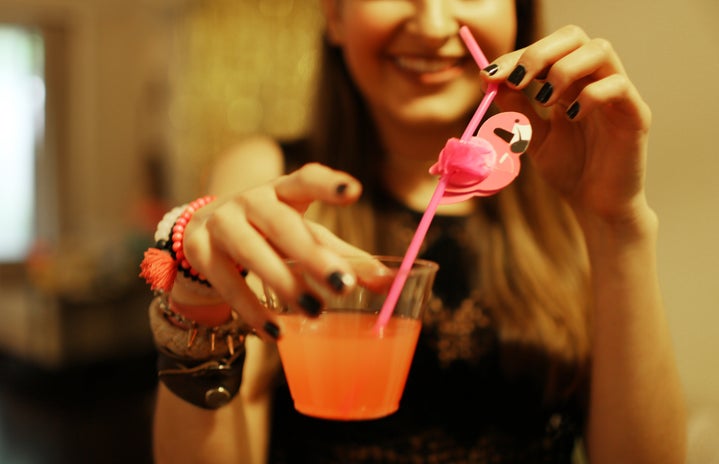Last year in the spring, I got a call that a friend of mine, a first-year pharmacy student living in Pittsburgh, was going to rehab for alcoholism.
At the time, I couldn’t understand how someone so strong and smart could end up an alcoholic. She had always seemed so happy and successful, and now alcohol was destroying her life?
As it turns out, nothing was as it seems.
The reality of the situation was that my dear friend had been struggling for quite some time. There was a lot going on beneath the surface that she had been trying to hide. For example, she was having trouble keeping up with her coursework, so she had gotten Adderall from a friend. She then started binge drinking to cope with how demanding school had become. As a result, alcohol became a crutch for her. When she went out, it was more than just social bonding: it was quite literally her escape. Since she was already taking Adderall, her drinking habits in combination led to a dangerous addiction. She became very depressed. She even had to drop out of school.
It was a huge wakeup call to me. I began to re-examine my own drinking habits and lifestyle. I stopped going out several times during the week and started out going out only on the weekends, then only once every month. By the end of the summer, I was not drinking at all.
As fun as it can be to go out and grab a few drinks with a friend, it can become a dangerous addiction. Alcohol abuse is especially common among college students–both on and off campus–where one or two drinks at a party can quickly become three, four or more.
Binge drinking can lead to a number of physical and mental health risks. The early signs of alcohol abuse include, but are not limited to, frequent blackouts, memory loss, irritability, aggression and anxiety, which can even lead to substance dependence. More long-term effects can include brain damage, heart problems, liver disease or other unintended individual consequences such as poor academic performance.
No matter how minor a drinking problem may initially seem, be aware of the early signs of alcohol abuse and when to get help. It can make all the difference.


